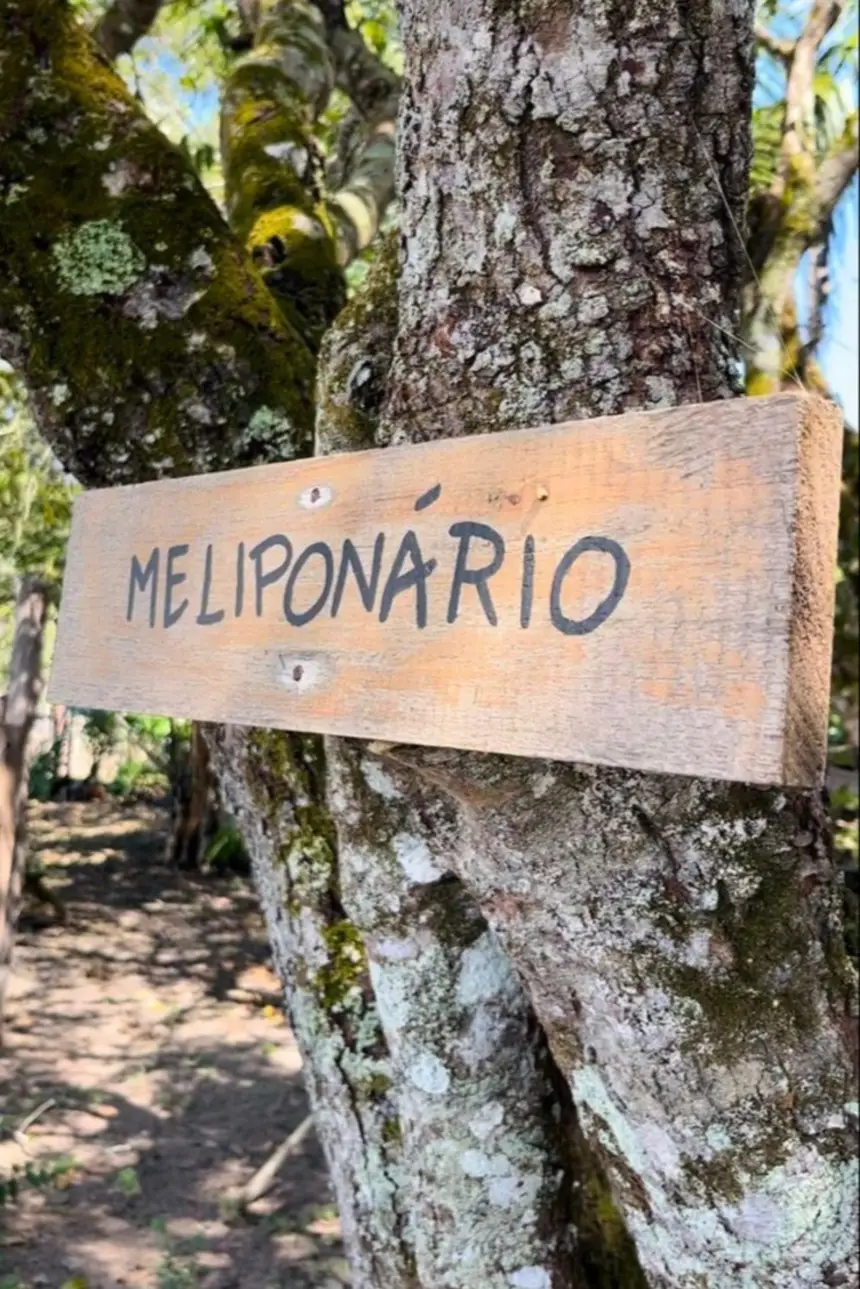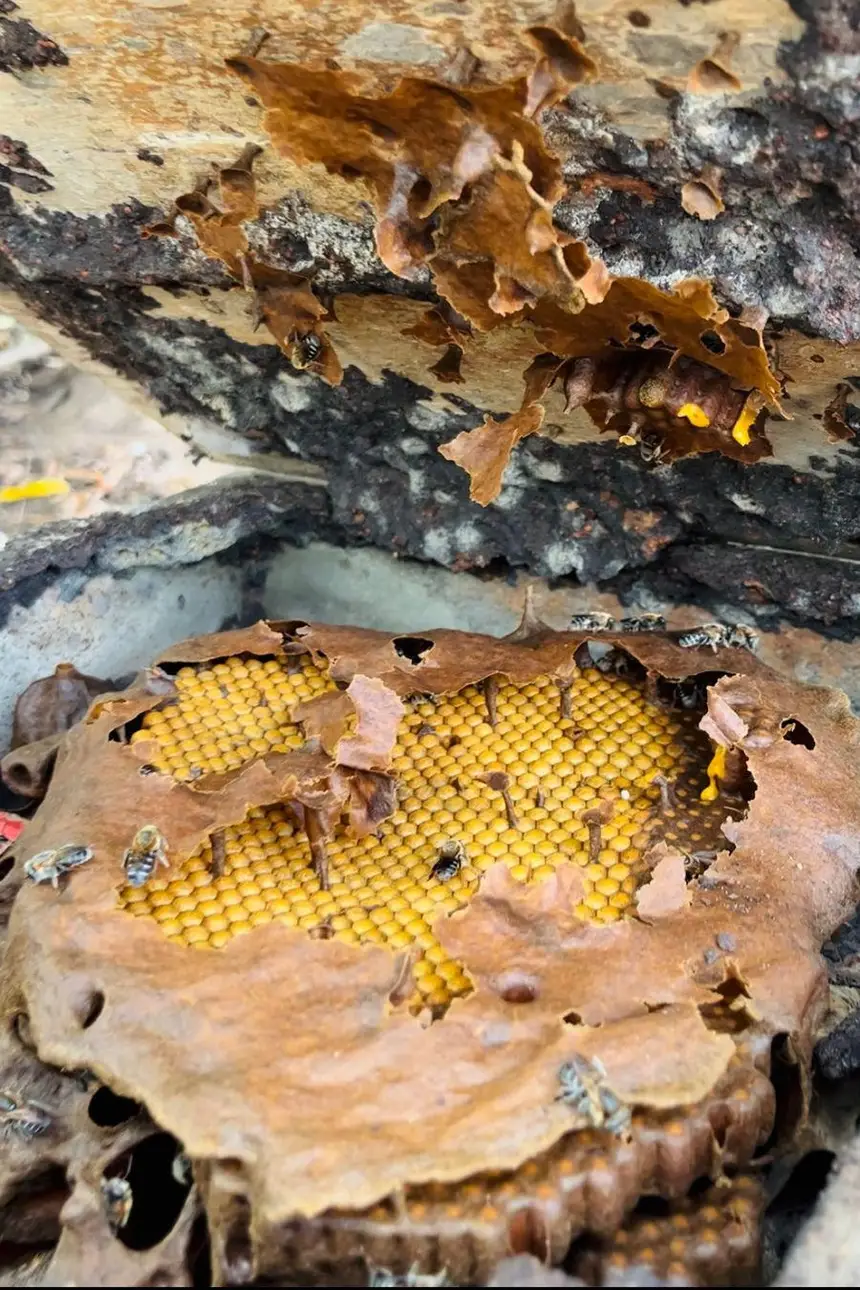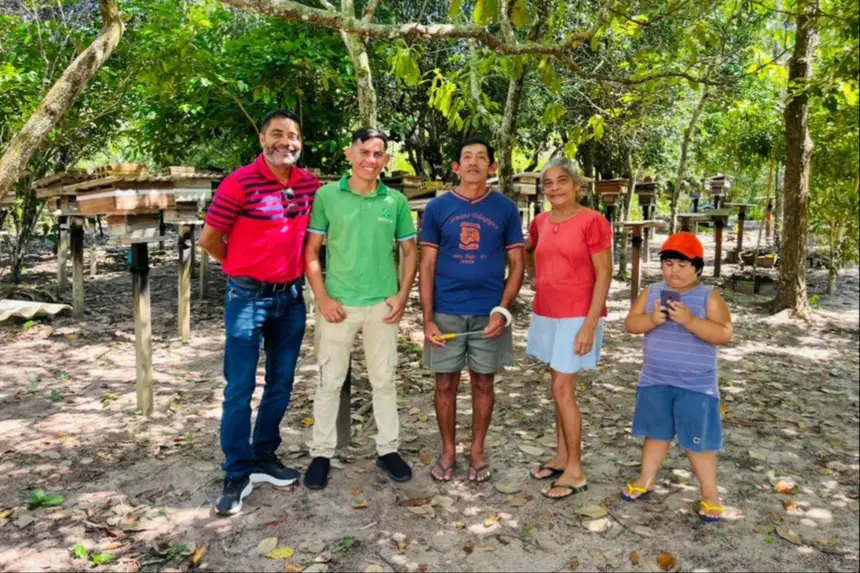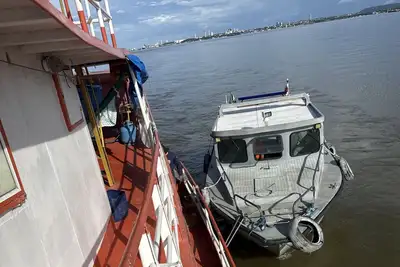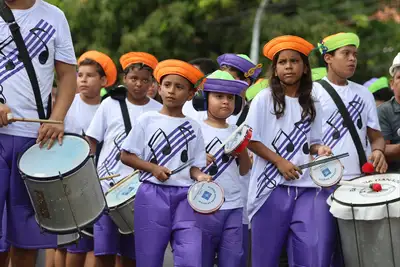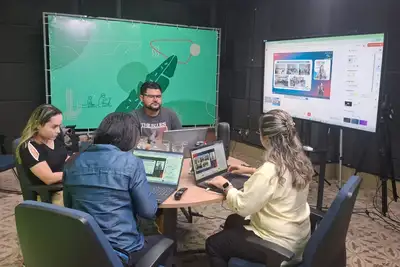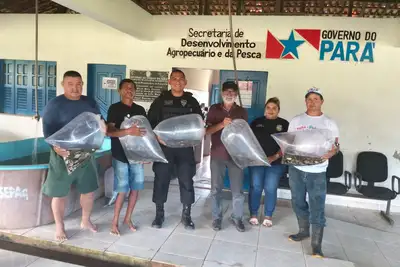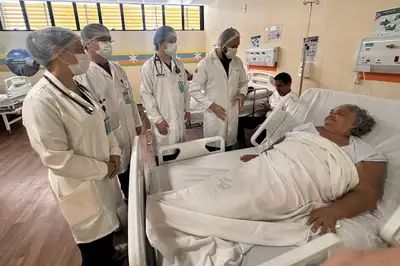Ideflor-Bio resumes technical assistance to meliponiculturists in the Paytuna APA, in Monte Alegre
The aim is to strengthen community meliponiculture — an ancestral practice that combines honey production with environmental conservation — contributing to income generation, sustainable development, and the appreciation of traditional knowledge.
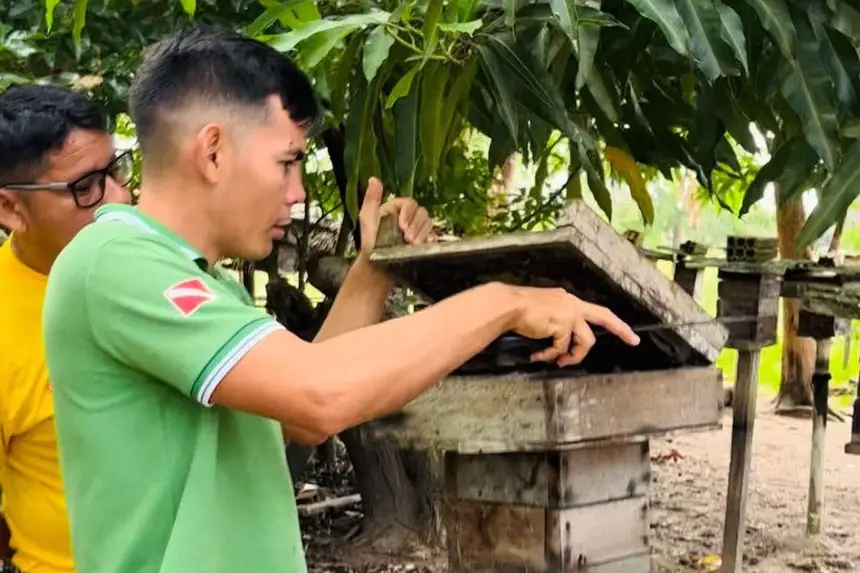
The Institute for Forest Development and Biodiversity of Pará (Ideflor-Bio), through the Management of the Administrative Region of the North Channel I (GRCN-I), has resumed technical assistance actions to traditional communities surrounding the Monte Alegre State Park, in the western region of Pará. The activity is supported by the Management of the Administrative Region of the North Channel III (GRCN-III), and marks the return of specialized support to the meliponiculturists from the communities of Lages, Paytuna, Santana do Paytuna, and Ererê, all located in the Paytuna Environmental Protection Area (APA).
The technical visit aimed to strengthen community meliponiculture — an ancestral practice that combines honey production with environmental conservation — contributing to income generation, sustainable development, and the appreciation of traditional knowledge. Ideflor-Bio's presence in the communities reinforces the commitment of the Government of Pará to an environmental management that recognizes and supports the protagonism of the populations living in the Conservation Units (UCs) of the North Channel.
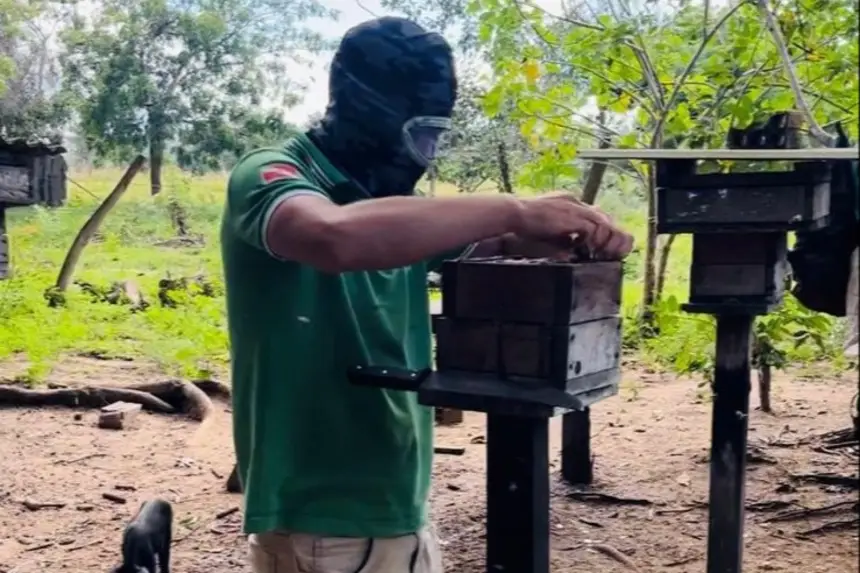
According to the manager of GRCN-I, Itajury Kishi, the resumption of assistance represents an important advance for the consolidation of public policies aimed at strengthening local production. “Resuming this work reaffirms our commitment to traditional communities and to the sustainable development of the territory. Meliponiculture is an activity that unites production, environmental conservation, and cultural identity, and our role is to ensure that this knowledge and practices continue to be strengthened with the necessary technical support,” he stated.
Technical guidance - The work of the Institute's teams seeks to guide meliponiculturists on the proper management of meliponas — native stingless bees — focusing on improving the productivity of meliponaries, enhancing breeding techniques, and preserving local ecosystems. The assistance also aims to promote the autonomy of producers, always respecting the ways of life of the communities and encouraging sustainable practices.
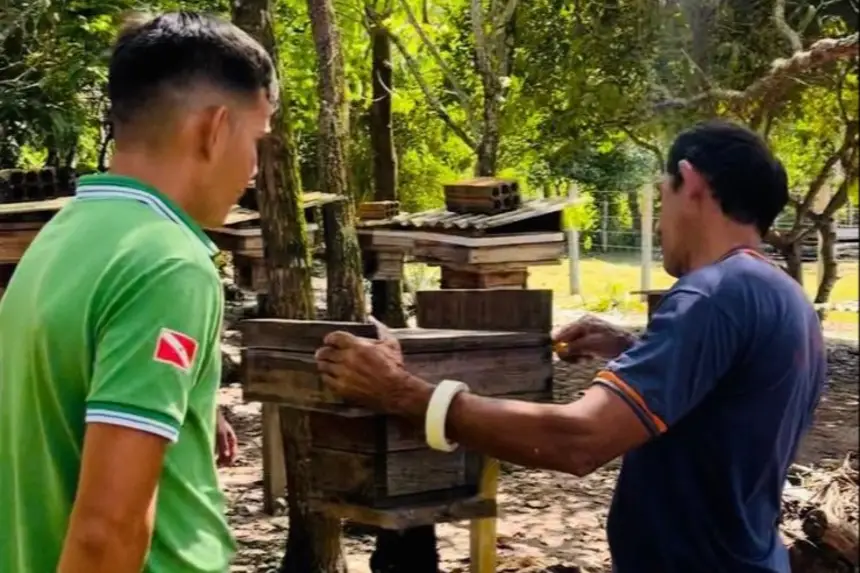
During the visits, community listening sessions and evaluations of existing structures were conducted, aiming to plan future actions that meet the specific needs of each locality. Direct dialogue with producers allowed for the identification of challenges and potentialities of the meliponiculture production chain in the territory of the Paytuna APA.
The initiative is part of Ideflor-Bio's set of strategies to strengthen participatory management in the UCs of the North Channel, promoting an approach that combines biodiversity conservation with productive inclusion and cultural appreciation. The resumption of support to meliponiculturists reaffirms the role of the Institute as a facilitator of processes that unite technical knowledge, environmental protection, and human development.
Text in collaboration with Michele Lucas (Ideflor-Bio)



